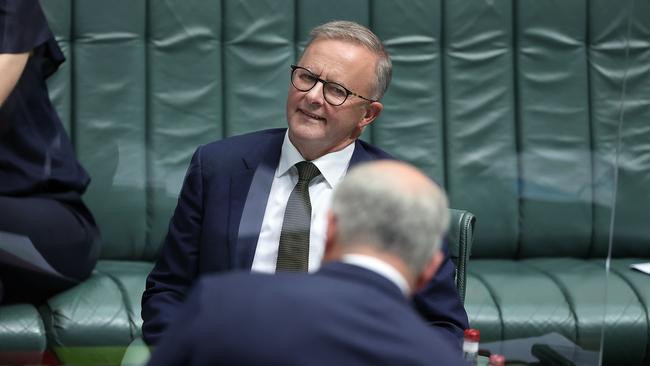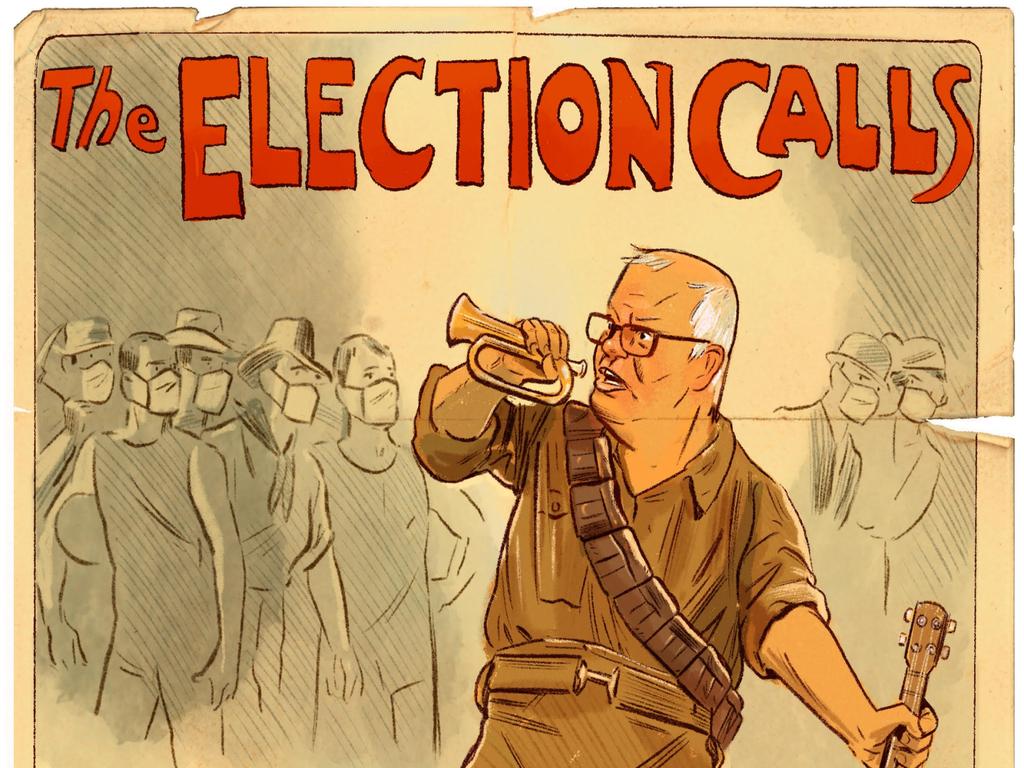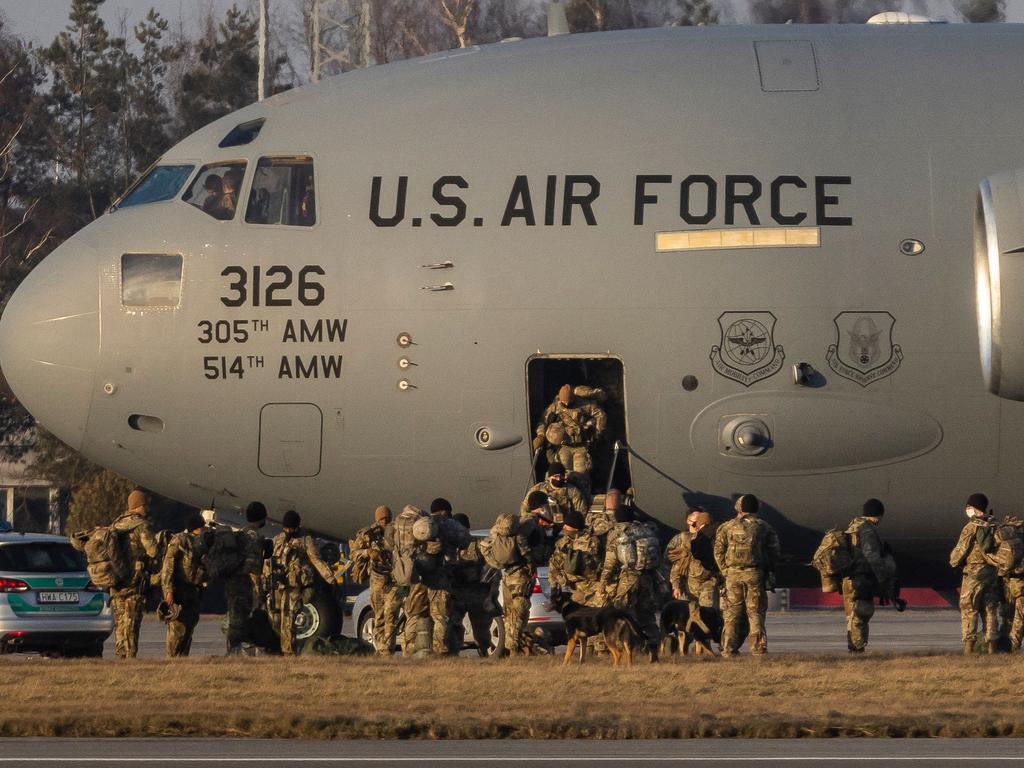
In its bid to make national security a key election issue, the Coalition could be a victim of its own success. Its signature Operation Sovereign Borders policy has been one of the most controversial and effective models for defending national borders against people smugglers and terrorists. But years of border closures due to Covid mean the threats to national security appear more existential and long-term than visceral and immediate. Unless matters change, it is unlikely to be a priority for voters at the election.
Since the national terrorism threat level was raised to “probable” in 2014, the government has passed at least 22 tranches of legislation to bolster national security and counter-terrorism. The Coalition has introduced extensive laws to curb foreign interference. Concerns over the Chinese Communist Party are front of mind. In 2017, prime minister Malcolm Turnbull noted reports that the CCP had been interfering with the media, universities and elected representatives. He said the relationship between Australia and China should not be jeopardised by failing to articulate the norms and standards of engagement.
The Coalition has led the charge on new laws aimed at strengthening the government’s power to deport violent foreign criminals. Under existing laws, foreign offenders can be deported if they are sentenced to at least 12 months or fail the character test. The Migration Amendment (Strengthening the Character Test) Bill provides for the deportation of people convicted of serious offences even if they have been given a light sentence for violent crime. The government has deported more than 10,000 foreign criminals since 2014. The new laws could enable it to deport another 10,000 and deny numerous visa applications from foreign offenders. Labor had opposed the government’s Migration Amendment Bill. In the Senate, Labor immigration and citizenship spokeswoman Kristina Keneally presented her case, which featured a lengthy character attack on the Prime Minister. If only Labor reserved the same vitriol for the character of the foreign criminals the new laws will target.
Morrison has been a key figure in the Coalition’s national security success story. As immigration minister, he defended Operation Sovereign Borders against fierce domestic opposition and international pressure. As PM, he has elevated the status of Australia to a leader in international affairs and championed democracy in the Asia-Pacific region. The CCP is not best pleased.

Relations with China have cooled since the government banned Huawei from our 5G network. The Gillard government had excluded it from taking part in tenders for the NBN. Labor has adopted a bipartisan approach on the South China Sea and Hong Kong while criticising China’s human rights record. However, it also politicises deteriorating bilateral relations and exploits tensions with the communist regime to casts the Coalition as a guilty party.
Shortly after Covid-19 broke out, Morrison called for an independent inquiry into its origins. He explained that the virus had taken more than 200,000 lives, battered the global economy and that the implications would be “extraordinary”. The CCP responded with economic threats and coercion. It imposed an 80 per cent tariff on Australian barley and banned red meat exports from major abattoirs. Rather than condemning the communist regime outright, Labor accused the government of mismanaging the relationship. But the CCP had form. China’s Foreign Ministry had previously retweeted a horrific fake image depicting an Australian soldier knifing a child. Anthony Albanese conceded it was offensive, but shifted blame by claiming the Coalition had “presided over a complete breakdown of relationships”.
When Morrison sought to make China more accountable on the global stage by soliciting formal recognition of it as a developed nation, Albanese defended its developing nation status. Speaking to the ABC, he argued the world’s second-largest economy was “clearly still developing”.
The government brought pressure to bear on Labor’s refusal to back national security reforms by highlighting its history of mollifying the CCP. The PM criticised Labor defence spokesman Richard Marles for having sought a relationship with China defined not only by bilateral trade, but “political co-operation and even defence co-operation”. Defence Minister Peter Dutton claimed Albanese was China’s pick for the election. The Opposition Leader denied it. Unfortunately, the CCP’s Global Times subsequently published a piece backing Albanese for PM. He has acknowledged the relationship with China was challenging and affirmed Labor’s position on the South China Sea, human rights and Hong Kong. However, he recently praised the Chinese government for “lifting hundreds of millions out of poverty”.
Some parts of the media were incensed that Labor MPs were called Manchurian candidates in parliament, and it was a ridiculous sledge. Yet there is a singular problem with Labor praising the Chinese government given the CCP’s record of appalling crimes against humanity. It still venerates founder Mao Zedong, the architect of the most murderous genocide in modern history. Historians hold the CCP responsible for the deaths of about 45 million people in the 20th century. The CCP abuses human rights with impunity, disappears dissenters and behaves like a rogue state on the international stage. Its irresponsible actions led to the spread of a global pandemic that has left millions dead, including thousands of Australians. You cannot stand up and praise the CCP after what it has done to humankind.
Albanese presents as a kid from public housing trying to make good in a world of realpolitik. But he is a world away from poverty and no innocent abroad.







The government went on the offensive last week. It applied pressure to Labor to secure the passage of key national security and immigration reforms. Having learned the bitter lesson that the price for low party discipline is government failure, it moved on from the religious freedom debacle to claim victory in the house. Labor was forced to reverse its opposition to reforms that will facilitate the deportation of convicted criminals. In the process, it took a hit for being soft on national security and China.